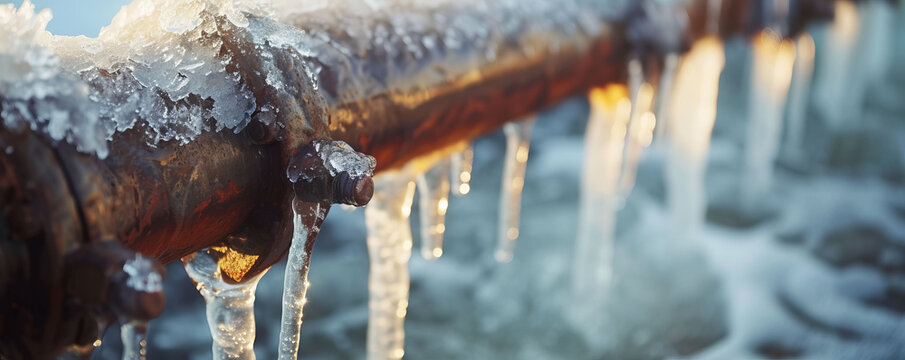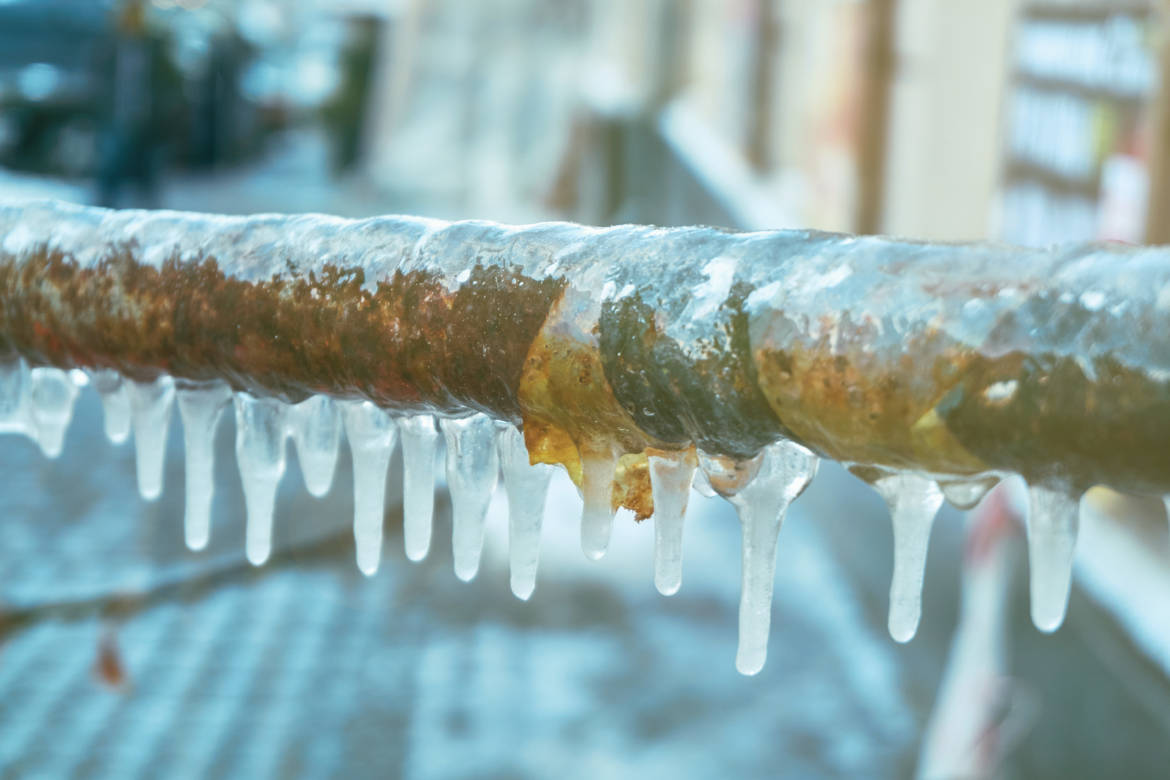Important Advice to Avoid Frozen Pipes in Winter: Specialist Insights
Important Advice to Avoid Frozen Pipes in Winter: Specialist Insights
Blog Article
This great article in the next paragraphs in relation to Winter Plumbing Precautions: Preventing Frozen Pipes is unquestionably informative. Read it for yourself and see what you think of it.

Winter can damage your pipes, specifically by freezing pipelines. Right here's just how to prevent it from taking place and what to do if it does.
Introduction
As temperatures drop, the risk of icy pipelines increases, possibly leading to pricey repair services and water damage. Recognizing exactly how to avoid icy pipelines is critical for homeowners in cold climates.
Comprehending Icy Pipes
What causes pipes to freeze?
Pipelines ice up when subjected to temperature levels listed below 32 ° F (0 ° C) for extended periods. As water inside the pipelines ices up, it broadens, putting pressure on the pipe wall surfaces and potentially causing them to burst.
Threats and problems
Icy pipelines can bring about supply of water disruptions, building damages, and costly repairs. Ruptured pipes can flood homes and cause extensive architectural damage.
Indications of Frozen Piping
Recognizing icy pipes early can stop them from bursting.
Just how to recognize icy pipelines
Seek reduced water flow from taps, uncommon smells or noises from pipes, and visible frost on exposed pipes.
Prevention Tips
Protecting prone pipelines
Cover pipelines in insulation sleeves or make use of warmth tape to safeguard them from freezing temperatures. Focus on pipes in unheated or outside locations of the home.
Heating methods
Keep interior rooms effectively warmed, especially locations with plumbing. Open cupboard doors to permit warm air to flow around pipes under sinks.
Shielding Exterior Pipes
Yard tubes and exterior taps
Detach and drain pipes garden tubes before winter season. Mount frost-proof faucets or cover outdoor taps with protected caps.
What to Do If Your Pipelines Freeze
Immediate actions to take
If you suspect icy pipes, keep taps available to ease pressure as the ice melts. Make use of a hairdryer or towels soaked in warm water to thaw pipes gradually.
Long-Term Solutions
Structural adjustments
Think about rerouting pipelines far from outside wall surfaces or unheated areas. Include extra insulation to attic rooms, basements, and crawl spaces.
Updating insulation
Purchase top quality insulation for pipelines, attic rooms, and walls. Appropriate insulation aids maintain regular temperature levels and decreases the risk of frozen pipelines.
Final thought
Preventing icy pipelines needs aggressive actions and quick reactions. By understanding the reasons, indications, and safety nets, homeowners can shield their pipes during cold weather.
Helpful Tips to Prevent Frozen Pipes this Winter
UNDERSTANDING THE BASICS: WHY PIPES FREEZE AND WHY IT’S A PROBLEM
Water freezing inside pipes is common during the winter months, but understanding why pipes freeze, and the potential problems it can cause is crucial in preventing such incidents. This section will delve into the basics of why pipes freeze and the associated problems that may arise.
THE SCIENCE BEHIND FROZEN PIPES
When water reaches freezing temperatures, it undergoes a physical transformation and solidifies into ice. This expansion of water as it freezes is the primary reason pipes can burst. As the water inside the pipe freezes, it expands, creating immense pressure on the walls. If the pressure becomes too great, the pipe can crack or rupture, leading to leaks and water damage.
FACTORS THAT CONTRIBUTE TO PIPE FREEZING
Low Temperatures: Extremely cold weather, especially below freezing, increases the risk of pipes freezing. Uninsulated or Poorly Insulated Pipes: Pipes located in unheated areas, such as basements, crawl spaces, or attics, are more prone to freezing. Insufficient insulation or lack of insulation altogether exacerbates the problem. Exterior Wall Exposure: Pipes running along exterior walls are susceptible to freezing as they encounter colder temperatures outside. Lack of Heating or Temperature Regulation: Inadequate heating or inconsistent temperature control in your home can contribute to frozen pipes. PROBLEMS CAUSED BY FROZEN PIPES
- Pipe Bursting: As mentioned earlier, the expansion of water as it freezes can cause pipes to burst, resulting in significant water damage.
- Water Damage: When pipes burst, it can lead to flooding and water damage to your property, including walls, ceilings, flooring, and personal belongings.
- Structural Damage: Prolonged exposure to water from burst pipes can compromise the structural integrity of your home, leading to costly repairs.
- Mold and Mildew Growth: Excess moisture from water damage can create a favorable environment for mold and mildew growth, posing health risks to occupants.
- Disrupted Water Supply: Frozen pipes can also result in a complete or partial loss of water supply until the issue is resolved.
WHY CERTAIN PIPES ARE MORE PRONE TO FREEZING
- Location: Pipes located in unheated or poorly insulated areas, such as basements, crawl spaces, attics, or exterior walls, are at higher risk of freezing.
- Exterior Pipes: Outdoor pipes, such as those used for irrigation or exposed plumbing, are particularly vulnerable to freezing as they are directly exposed to the elements.
- Supply Lines: Pipes that carry water from the main water supply into your home, including the main water line, are critical to protect as freezing in these lines can affect your entire plumbing system.
- Underground Pipes: Pipes buried underground, such as those connected to sprinkler systems or outdoor faucets, can be susceptible to freezing if not properly insulated.
https://busybusy.com/blog/helpful-tips-to-prevent-frozen-pipes-this-winter/

We were guided to that write-up about Helpful Tips to Prevent Frozen Pipes this Winter through an associate on our other site. Kindly set aside a second to share this content if you enjoyed it. We cherish reading our article about How to prepare your home plumbing for winter weather.
Call Today Report this page